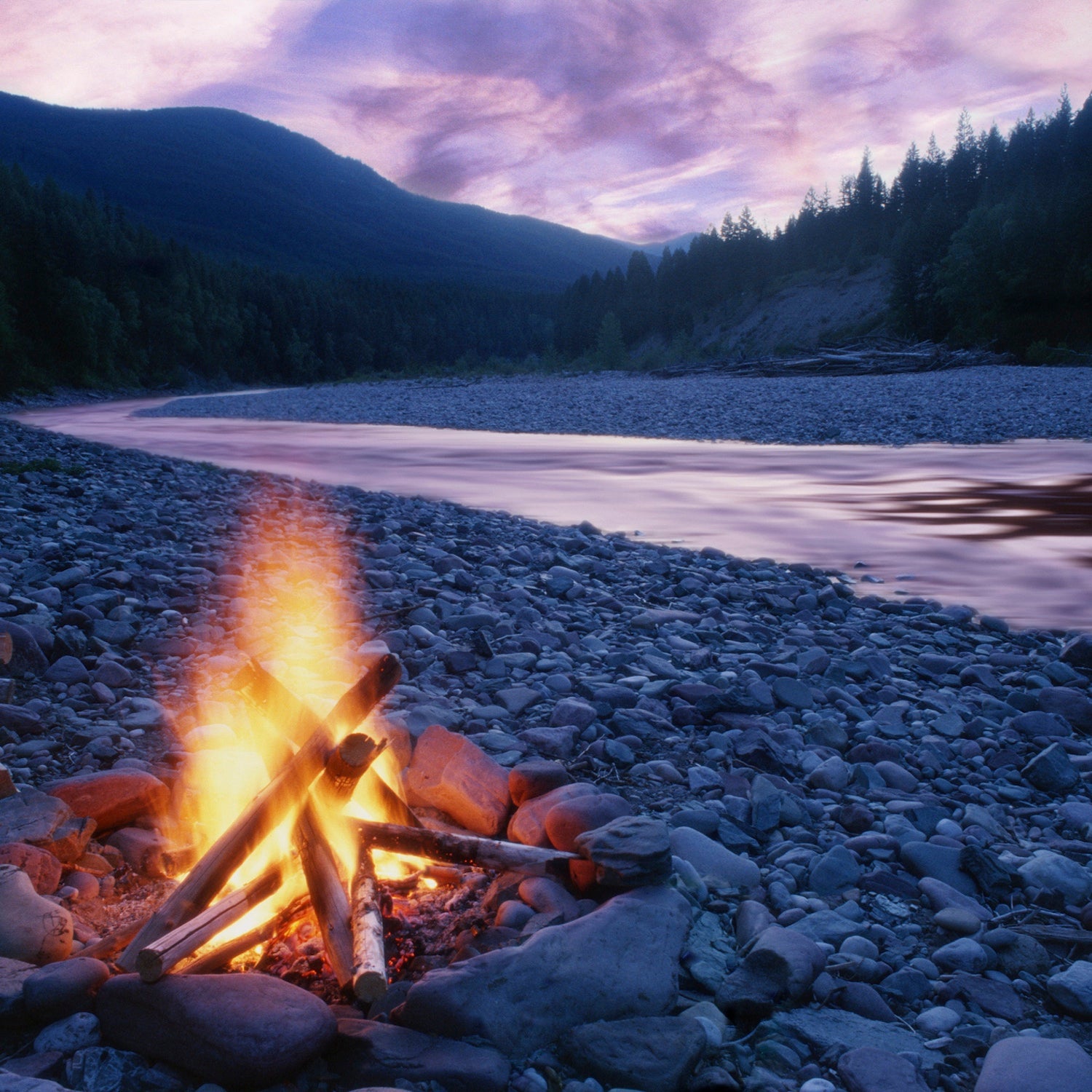Welcome to Tough Love. We’re answering your questions about dating, breakups, and everything in between. Our advice giver is Blair Braverman, dogsled racer and author of and . Have a question of your own? Write to us at toughlove@outsideinc.com.
I think my friend is trying to get stuck in the wilderness. This year we have started taking weekend backpacking trips together and have a nice time. Last time, we were hiking to the trailhead on Sunday and there were dark clouds gathering in the sky, but according to the weather report it wasn’t supposed to storm until afternoon. I thought we could make it easily but it seemed like he kept stalling along the way, and finally he said that we wouldn’t make it out in time and we should set up camp and wait out the weather. He seemed weirdly cheerful about it. I said that was unnecessary and sure enough we got to the car with plenty of time. It made me realize that he often suggests that kind of thing, like that we can’t keep going (on the way back), or that we’ll have to wait out the weather. One time he said the trail was impassible, but we eventually got through. I’ll admit I felt a little thrilled at the thought of staying out, too, but I quickly thought better of it. My friend loves survival shows and often says that he would do well on Alone. Am I off base for thinking that maybe he’s trying to make that happen in real life? To be clear, I don’t feel scared, but I do feel like on some level he is wanting us to get stuck out there. Is this dangerous? What is the best way to handle it?
I’ll confess that I find your friend’s efforts a bit charming, even though—let me be very clear here—it is highly irresponsible to try to get trapped in the woods. Lost hikers don’t just put themselves in danger, but put rescuers at risk, too, and they can stretch already-thin search-and-rescue resources to the brink. If you’re in a more trafficked area, with designated campsites, then changing routes and camping in unplanned spots can seriously affect the natural environment. Stories about lost hikers are also apt to scare would-be outdoorspeople out of getting involved in their local nature scene, making the woods seem more ominous and unpredictable than they really are. These are all bad things! Also, it’s not cool and you just shouldn’t do it. There are better ways.
If you ever for a second get the vibe that your friend is sabotaging your trips—intentionally losing the trail or misplacing the map, forgetting or damaging vital supplies, things like that—then you should hightail it away from this guy and never go backpacking with him again. It doesn’t seem like that’s what’s happening now, but his actions could develop into something more insidious, so it’s worth keeping an eye out and staying aware.
However, it doesn’t really sound, from your examples, like your buddy is doing dangerous things. It sounds like he’s just hoping in his heart that he might have to sleep out an extra night, or wait out a rainstorm in a tent, in the same way that someone might fantasize about getting stuck at a dream vacation destination so that they don’t have to leave.
The thing is, the more advanced that someone’s backcountry travel is, the less of a line there is between getting stuck and not getting stuck—because the longer someone’s out there, the more they’ll have to adapt their plans to changing conditions rather than sticking to an ironclad schedule that was planned in advance. For a weeklong trip, it wouldn’t be unusual to plan an extra day of buffer time, or even a few days, since you know you’ll have unexpected challenges, detours, and rests. And for a longer trip, like a thru-hike or expedition, most schedules and dates can’t be pre-planned at all. You’ll get there when you get there, and you’ll cross what you have to cross. Even if it were possible to plan a precise schedule, it would be beside the point; the point is living along the way.
I wonder if your friend’s reluctance to reach the trailhead—and your own thrill at the thought of staying out—is a sign that you’re craving, and emotionally ready for, longer trips, with all the fluidity that they entail. Is he up for four days? Five? Are you? If doubling or tripling your distances seems daunting, you could start by giving yourselves more days for the same length trip: set up a base camp, explore, and take day hikes en route, without the pressure of constantly moving (and hauling additional food and supplies a longer distance).
Another option—if your friend wants the excitement of feeling “stuck” out there—is to hire a boat to leave you on an island, with supplies, then have it come back again and pick you up a set time later. (Or go backpacking somewhere like Isle Royale national park, which is located on a remote island itself.) That’s definitely an advanced alternative, but with the right preparation, it can be a fun and responsible adventure. Heck, you could even offer to split up for a while to let your friend try out being “Alone.”
My hunch is that you don’t need to overthink your friend’s survival bent; it means you’re both ready for more adventures, and hey, you’re adults and you get to make that happen! You have a world of trips ahead of you, and a beloved companion who’s game. Travel farther. Be flexible. Plan unplanned time. You don’t need a storm to make you stay longer in the wilderness. You can stay because you want to, or because the sun is hitting a lake just right. You can stay because it feels like home.


